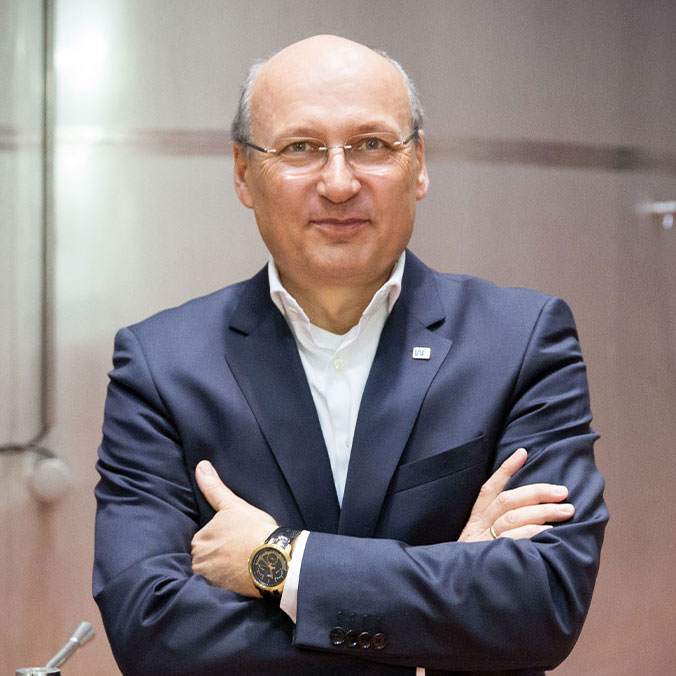 Small wineries, like large wineries, are currently affected by cost explosions and delivery problems. Austria's largest wine bottler Wegenstein has to cope with the small 2021 harvest. Managing director Herbert Toifl tells us in an interview what is important to him now.
Small wineries, like large wineries, are currently affected by cost explosions and delivery problems. Austria's largest wine bottler Wegenstein has to cope with the small 2021 harvest. Managing director Herbert Toifl tells us in an interview what is important to him now.The Wegenstein winery fills around 24 million bottles a year, making it the largest wine bottler in Austria. The company purchases over 14 million litres of wines from about 600 winegrowers and three cooperatives. This corresponds to the yield of an area of about 2,000 hectares of vineyards. The winery is a company of the German supermarket group Rewe International AG and supplies around 2,500 of the group's shops, including Billa, Billa Plus, Penny, Adeg and Sutterlüty in Austria. The company's 29 employees generate about 60 per cent of their turnover with Austrian quality wines and about 40 per cent with imported wines from the EU and overseas.
The harvest was small in Europe. Are all the wines you offer available in sufficient quantities? If not: where do you look for substitutes?
Toifl: We were able to procure the Wegenstein items listed in our trading companies in sufficient quantities. We have long-standing partnerships with suppliers at home and abroad and are therefore informed at an early stage about the expected harvest quantities and were thus able to secure our needs. Of course, like all other market participants, we had to accept the price changes. Simply exchanging wines for other varieties and origins is demanding, because our customers hold cherished brands in high esteem.
How do you deal with higher wine purchase prices?
Toifl: Of course we bear these price changes, which occur due to natural harvest fluctuations and help secure the existence of our partner winegrowers. At the moment, however, the cost of materials is also rising sharply. We are trying to compensate for these additional costs by increasing efficiency. The investments that have now been completed to automate our production processes in the cellar and on the bottling lines are very helpful here.
It is not only the grape prices that have become higher. Raw materials such as glass, aluminium closures, pallets, cardboard boxes, energy and transport have become immensely expensive.
Toifl: Absolutely! But this issue will continue to challenge us for a long time. The energy cost surcharges for bottles and packaging material as well as the aluminium bottlenecks are causing uncontrollable price increases and sometimes delivery failures. Our supplier for screw caps, for example, secured several tonnes of aluminium for our needs in autumn - but without knowing the price. That is very demanding from an entrepreneurial point of view. Some glassworks now prefer to pay contractual penalties for unfulfilled delivery contracts than to deliver their bottles below cost price due to too tightly calculated energy costs. We enjoy a certain special and safeguarding status in this respect. Annual framework agreements give our suppliers security over precisely agreed purchase quantities. In return, we enjoy the security of reliable delivery quality. However, no one knows today how the energy issue will develop.
The surcharges cause uncontrollable price increases.
But Wegenstein has to occupy price points to which a private winegrower is less bound.
Toifl: Our main business is the entry-level price segment and the mid-price segment. My personal claim at Wegenstein is already to represent the best possible quality at the best possible price on the shelves of our trading companies in every quality segment.
Are you afraid of losing market share due to price increases?
Toifl: Not at the moment. The supply from the 2021 harvest in Austria is by and large in line with demand, while in the largest wine-growing countries in Europe small harvests were brought in and increased prices reflect the high demand. Substitution is therefore not sensible and hardly possible because there are no cheaper alternatives. The stable sales in the food trade ultimately also help our partner vintners, whose cellars are already empty. Of course, some customers will also switch to lower-priced segments. As a rule, only a few customers exceed certain price thresholds.
Does this mean that new trends are emerging?
Toifl: I currently see a strong trend in the development of organic wines. While many producers and their lobbyists are strongly concerned with the interpretation of "sustainability", customers are already much further along in this discussion and are increasingly buying organic products.
Conclusion: There is too little of everything.
Toifl: In terms of sourcing materials, that is definitely the case. However, wine availability is definitely assured, albeit at higher prices. But after the harvest is before the harvest. It is possible that this situation will change again soon. In this business, it is always important to deal transparently and fairly with all market participants.
Photo: ©Anna Stöcher;